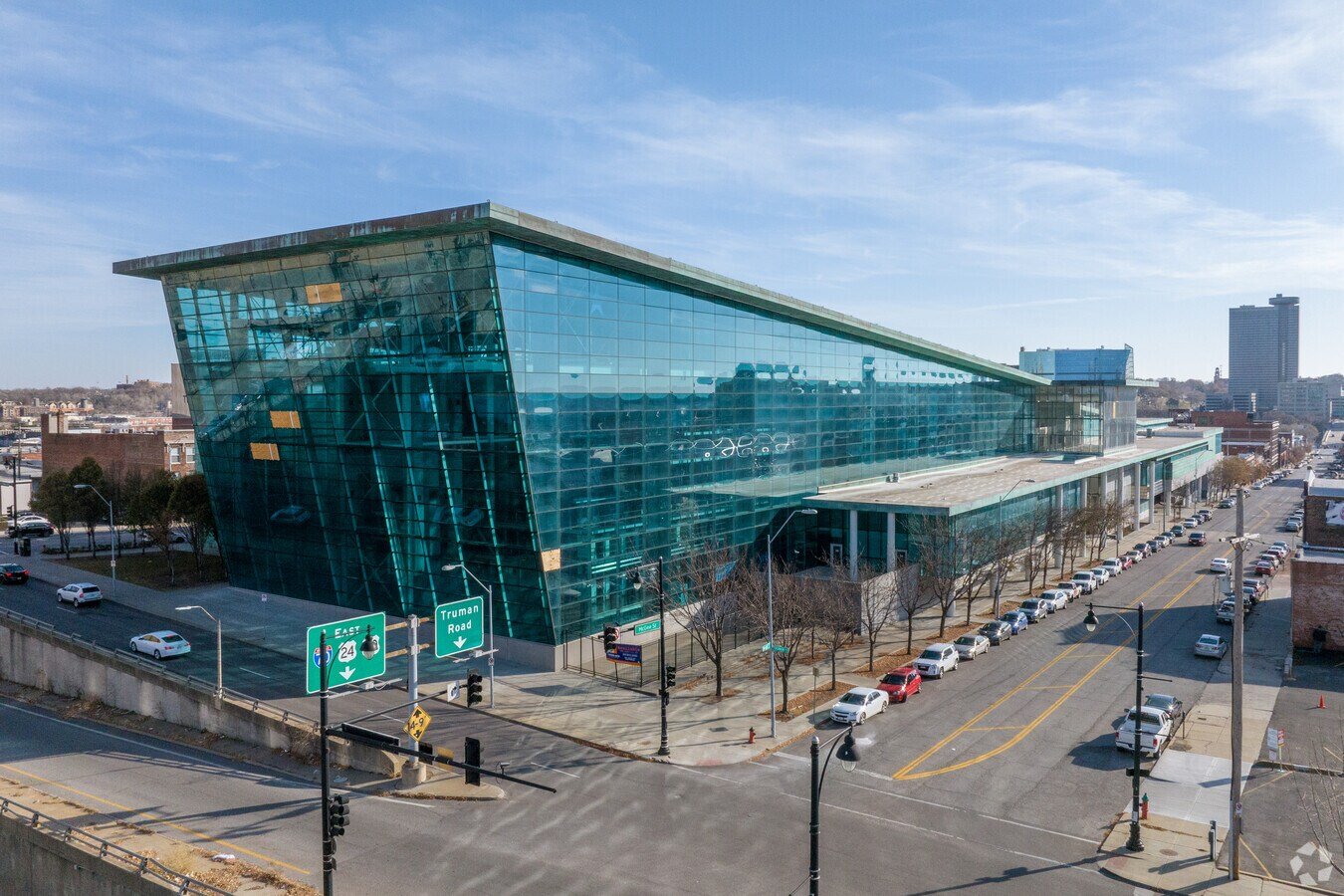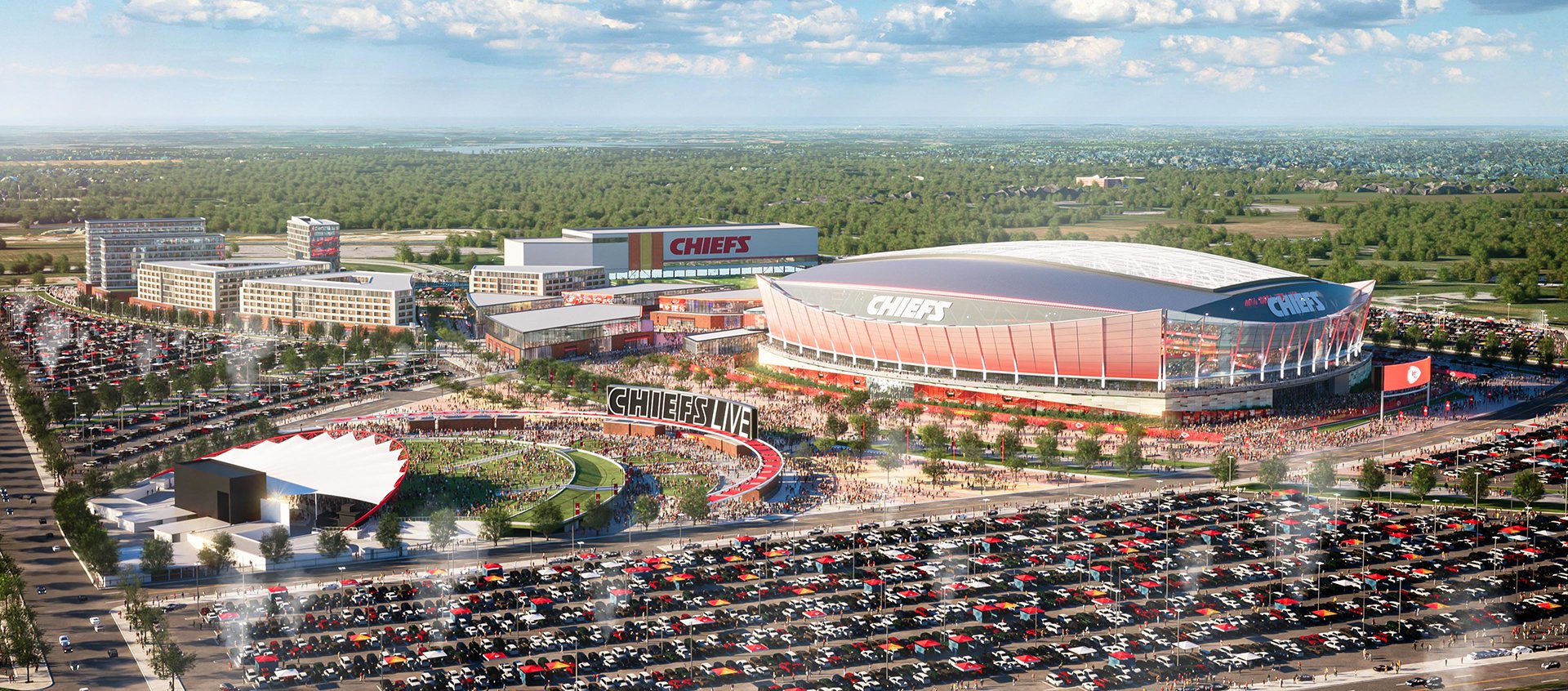KC SmartPort’s 12th annual industry briefing was held on June 24, focusing on the food and beverage industry and the growth of the Kansas City region as a hub for food logistics.
Jason Robertson, vice president, food + beverage, at CRB, joined Chris Gutierrez, president of KC SmartPort, on stage.
“What else connects our personal lives, our business lives, creates those life experiences besides food and beverage,” said Gutierrez.
From a temporary sidewalk stage, Gutierrez addressed a crowd of more than 300 seated at tables on 13th Street under the Kansas City Convention Center.
“There are a lot of things happening in food and beverage. Whether it’s what you eat, how it’s made, the production innovations that are happening, and of course, how is it distributed and delivered in an on-demand world,” Gutierrez said.
Currently, more than 670 industrial food and beverage operations call the Kansas City region home. This $125.4 billion Kansas City industry employs more than 25,500 people in food and beverage manufacturing, warehousing and distribution.
Gutierrez said that food and beverage projects have increased 64 percent year over year in the Kansas City market. In the last 18 months, several food and beverage companies, including Dot’s Pretzels, Hostess Brands, World Pantry, Pretzels, Inc. and Niagara Bottling, have come to the market.
KC SmartPort reported that the food and beverage companies attracted to the Kansas City area in the past two years have pledged to create more than 1700 jobs, invest more than $330 million and occupy nearly 3.5 million SF.
Nationally, the demand for cold storage in temperature controlled space is not meeting the supply; but, Kansas City has stepped up, Gutierrez said.
Liberty, Missouri will be home to the recently announced Heartland Cold Storage Logistics Center. Gutierrez said CBRE will announce in the near future another cold storage facility coming to the region.
“It’s coming and there’s more on the horizon. We’re meeting that demand. There’s a lot of need for cold storage in this region,” said Gutierrez.
Robertson said the consumer is driving how food production facilities are designed and built, how food is packaged and what foods are coming to grocery shelves.
“Really the millennials and Gen Zs are those that are looking at a different type of interaction with their food products. I quickly compare that to maybe what Kraft macaroni and cheese used to be to now where Annie’s is really one of those top products,” said Robertson.
Workforce issues present one of the most challenging aspects of the food and beverage industry, said Robertson.
“I think there’s certainly a quality of life that the food producer is going to have to address,” Robertson said.
The design and construction of new food plants in the post-pandemic world will need to account for social distancing.
Food processors, particularly in the meat processing industry, learned during COVID-19 that “you just can’t social distance by the way that those products are ultimately processed and packaged,” said Robertson.
The industry also must address the challenge of retaining workers in facilities with temperatures of 30 degrees.
“You want to keep that worker because the dollars you invest to recruit and retain and so then ultimately, how do we create an environment for them to succeed and be happy to go to work every day,” Robertson said.
Not only did online grocery sales explode during the pandemic, but so did subscription food box sales.
“I would say that’s the future. That’s here to stay,” said Robertson.
Robertson said the industry will need to address how delivered food is packaged as some consumers complain about the use of too much plastic.
The industry also must evaluate packaging within the grocery stores. With more shoppers having groceries delivered to their homes or directly to their cars, Robertson asked whether the industry needs as many packaging types of materials to catch the shopper’s attention.
Gutierrez and Robertson discussed the advantages of the Kansas City region to the food production/food distribution industry, an industry facing rising costs and supply chain challenges.
Robertson noted that the average age of truckers is “north of the high 50s”, and that it takes several days to move product from coast to coast. Also, wages and costs per square foot in the Midwest are a fraction of the costs on the coasts.
“I just think that the play for logistics and more of a centrally located play is here to stay - will always be here to stay. I think that’s what we need to rally around as we recruit new prospects to the region,” Robertson said.






